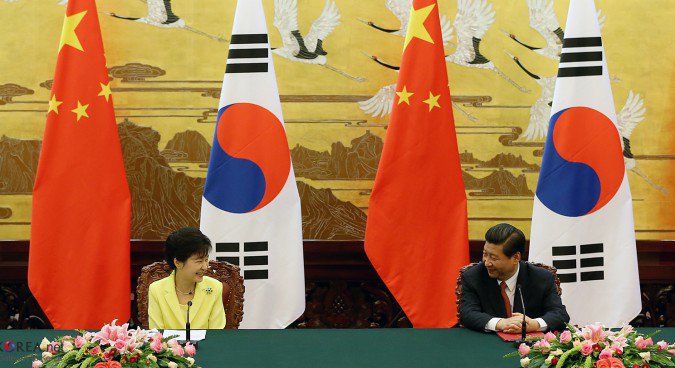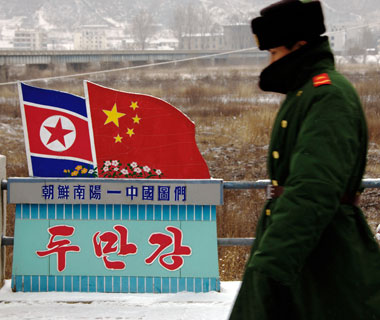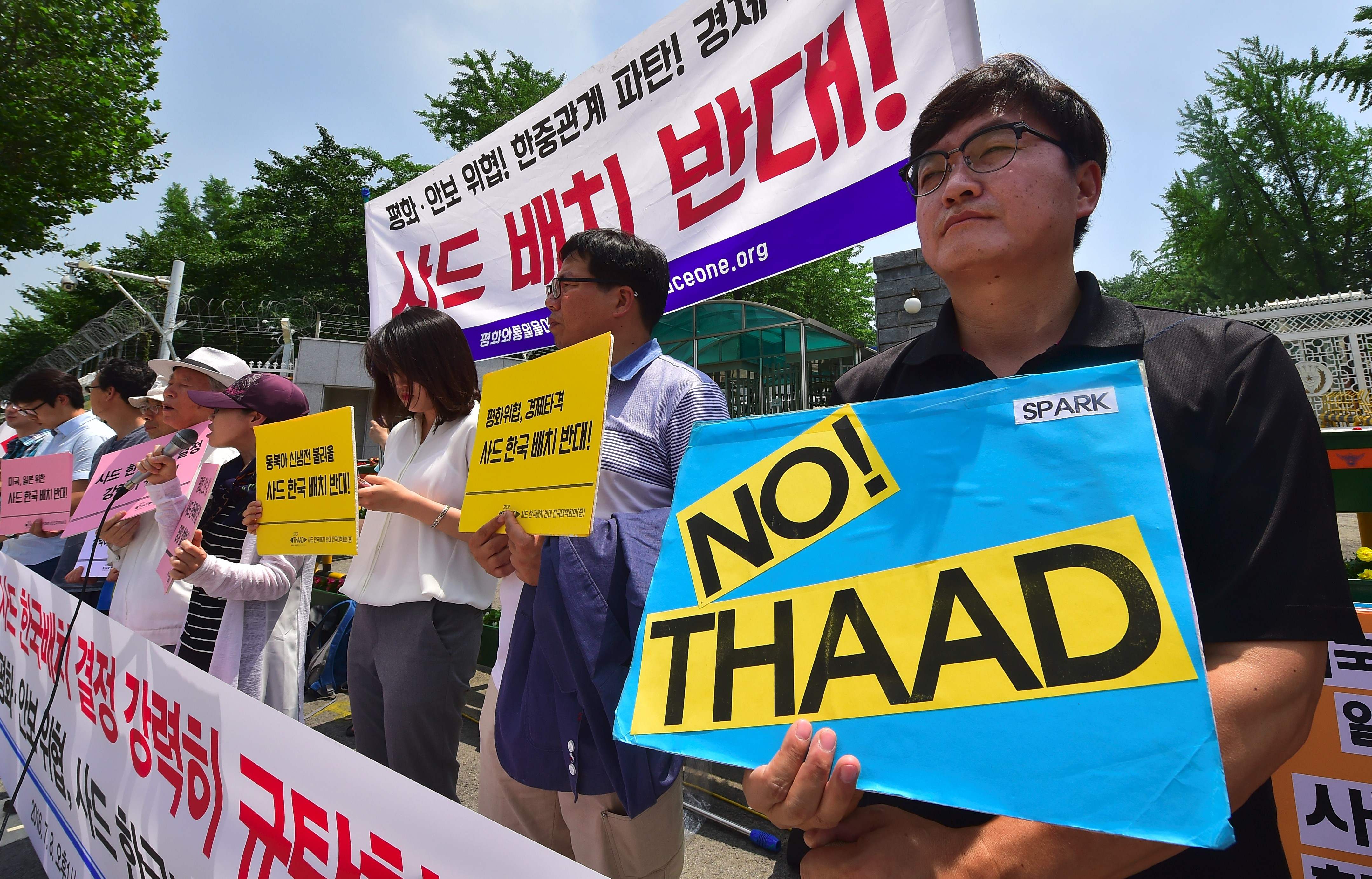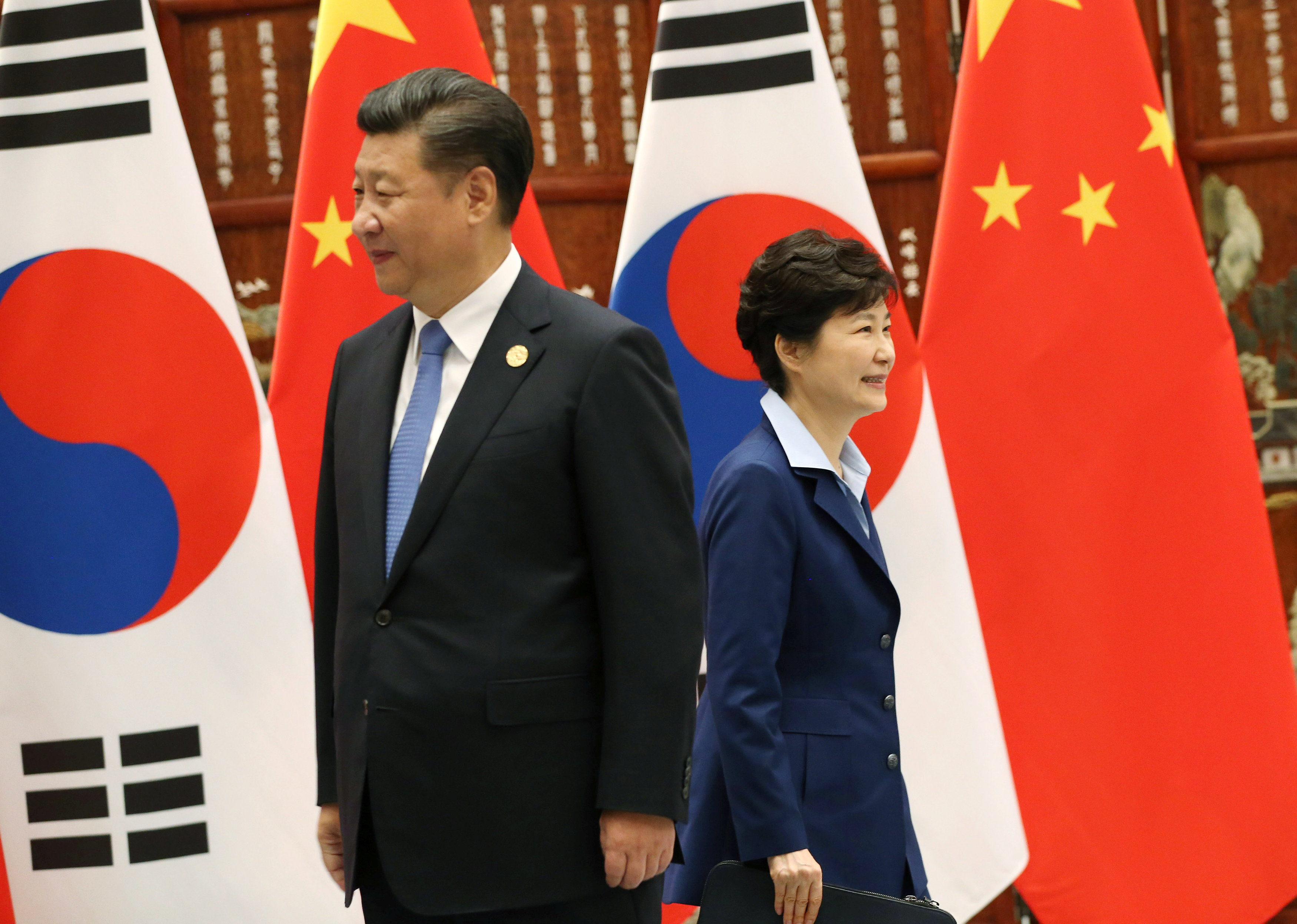In late August, I spent a few days in Beijing where I had many opportunities to meet Chinese academics and policy analysts. It was a rather large and diverse group which included both people who were, essentially, the voice of the leadership, and those who are not known to be Communist Party fans.
Needless to say, we largely talked about North Korea and, of course, about the current Chinese attitude to the situation in and around the Korean peninsula. Following sort of a tradition, I would like to brief the readers of NK News about what I saw and heard in Beijing, even though, due to the obvious reasons, this report is not going to be excessively detailed.
If one has to describe the current mood in Beijing in one short sentence, one can say: China is angry. It has been clear to me that the ROK-US decision to deploy the THAAD anti-missile system in Korea was bound to seriously irritate China. However, before my Beijing trip, I seriously underestimated the level of this irritation.
One of my Chinese contacts’ remarks demonstrate the current mood in Beijing in a concise way: “The North Korean nuclear program constitutes a threat to China and the THAAD deployment in South Korea constitutes a threat to China as well. It’s an open question which of the two threats should be taken more seriously, but it now seems that the threat presented by the THAAD deployment is greater.”
If one has to describe the current mood in Beijing in one short sentence, one can say: China is angry.
It is not that difficult to surmise what reasons lay behind South Korea’s decision to deploy the anti-missile system. On the one hand, this decision is driven by purely military considerations: by default, the anti-missile system will be capable of intercepting the North Korean missiles in an unlikely but possible event of a full-scale North Korean nuclear/missile attack against South Korea.
A CRITICAL MISCALCULATION
On the other hand, however, it’s obvious that many people in Washington and Seoul hoped that the THAAD deployment would push China towards taking a harsher stance on North Korea.
During my recent meetings in Beijing, I have not heard a single reference to the North Korean nuclear and missile program as the major reason for the current trouble.
Many people in the ROK and the U.S. expected that the Chinese government would realize that, at the end of the day, it was the North Korea’s continuous brinkmanship which made the THAAD deployment unavoidable, and thus, China would supposedly do something radical to solve the root cause of all complications: the North Korean nuclear and missile program, that is.
However, this scheme clearly did not work as intended. During my recent meetings in Beijing, I have not heard a single reference to the North Korean nuclear and missile program as the major reason for the current trouble. On the contrary, the THAAD deployment is almost universally seen in Beijing as a provocation targeting China and as an integral part of the American grand strategy aimed at encircling America’s major geopolitical rival.
The Chinese also see the THAAD deployment as an unprovoked betrayal of their goodwill. They remember that in late February, after much deliberation and rather heated internal discussions, China decided to join the U.S. in efforts to subject North Korea to a harsh international sanctions regime.
Back then, it was (at least, implicitly) understood that the Chinese willingness to cooperate meant that neither the U.S. nor the ROK would undertake military buildup or measures capable of undermining the Chinese security. However, it took merely three months before Seoul and Washington announced the THAAD deployment.
UNNECESSARY PROVOCATION?
In short, the THAAD deployment, if seen from the South Korean perspective, might make perfect sense. But, if judged from the Chinese perspective, it is perceived as an unprovoked challenge to the Chinese ability to deter a foreign attack and thus warrants some reaction.
The Chinese also see the THAAD deployment as an unprovoked betrayal of their goodwill.
The US government keeps insisting that THAAD in its current state is not capable of intercepting Chinese missiles. It is probably indeed the case, but the Chinese worry above all about the powerful radar which is an integral part of the THAAD system. They believe that this radar will provide Americans with signal intelligence about the Chinese military capabilities and activities in the territories near the north-eastern border. They also see the deployment of an anti-missile system near China’s borders as a dangerous precedent which might be emulated in future.
Given the situation, China is now preparing itself for a counter-strike. The South Korean media has reported that the Chinese have already undertaken some actions in order to reduce economic and cultural exchanges with South Korea. It might be true, but it seems that the real actions have not started yet. Right now, the Chinese still have hope that somehow, they will be able to persuade Seoul to delay or entirely cancel the deployment plan. However, at the same time, the possible economic sanctions are widely discussed in Beijing, and are likely to be implemented in near future, if (or rather when) diplomacy fails.
PUSHING BACK
Admittedly, there are some dissenting voices in the Chinese expert community. Some of the participants in these confidential but heated discussions admit that China is now incapable of preventing the THAAD deployment. So, those ‘doves’ argue, excessive pressure on South Korea will merely create additional tensions and, perhaps, will push Seoul even closer to Washington.
The South Korean media has reported that the Chinese have already undertaken some actions in order to reduce economic and cultural exchanges with South Korea.
Therefore, they say, China should bite the bullet and limit itself to largely symbolic and diplomatic measures as well as to some military countermeasures, if such countermeasures are feasible. However, these soft-liners are not particularly numerous and are obviously losing the debate, as they privately admit themselves.
Therefore, one can expect that in the next few weeks months an array of economic sanctions is going to be employed against South Korea. Given the level of South Korea’s trade dependency on China, these sanctions are likely to be rather hurtful.
Since China is not exactly a democratic liberal state, one can suspect that most or, perhaps, all such measures will not be announced openly and publicly. Instead, relevant companies in China will be privately instructed by the government officials that certain types of business interactions with South Korea are not advisable anymore. Given the political structure of China, one can be pretty certain that virtually all Chinese businesses will follow such instructions.
The exact shape of future sanctions is yet to emerge. In a remark, curiously reminiscent of what the U.S. supporters of sanctions often say, one of my interlocutors even said that China is looking for sanctions which will hurt the elite, but will inflict as little damage as possible on the common people.
COLLISION COURSE
Among some ideas, one can mention specific sanctions targeting those South Korean counties where the THAAD batteries are going to be deployed. These counties might end up losing pretty much all economic benefits of trade and other exchanges with China. One also can expect that the Chinese will ban or seriously reduce imports of some South Korean items (like, say, some kinds of consumer electronics) whose sales are quite profitable for South Korea.
All this is pretty sad, but completely expected. One has to honestly admit that there are good strategic reasons behind South Korea’s decision to deploy THAAD as a response to North Korean military buildup (which, in turn, also has perfectly understandable rationale). However, South Koreans are remarkably naïve if they believe that actions which constitute a challenge to neighboring great powers are not going to provoke some unpleasant consequences.
Among some ideas, one can mention specific sanctions targeting those South Korean counties where the THAAD batteries are going to be deployed.
No amount of diplomacy will persuade China that it should sacrifice its strategic security because a mid-size country nearby has valid reasons to worry about the behavior of a rogue state. China, being a sovereign state, is supposed to take into account nothing but its own interest, and it is not going to compromise on the THAAD issue. One obviously should not expect compromise from Seoul as well. So, for the foreseeable future, Seoul and Beijing are seemingly on a collision course.
Source: NK News




